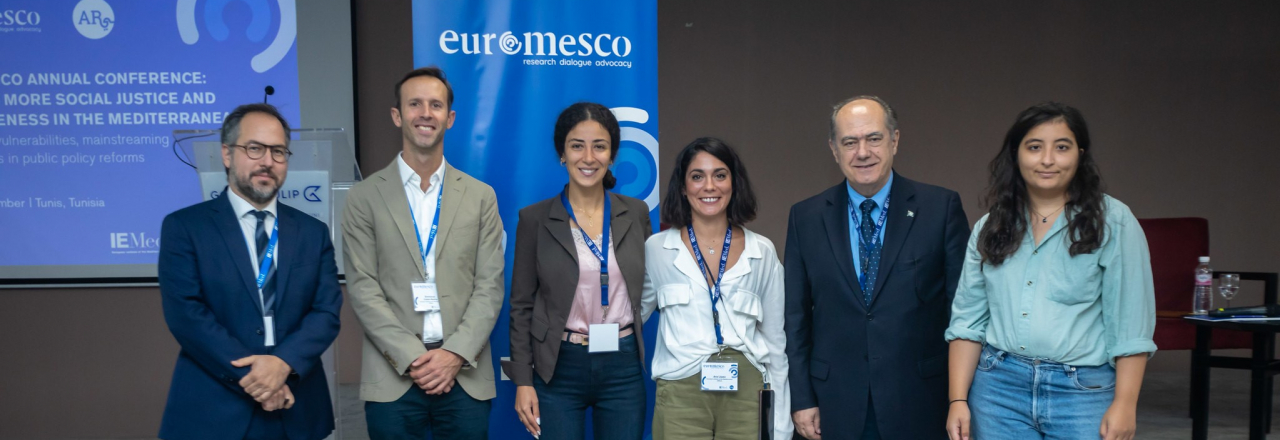
Report
AC 22 | Country Event Tunisia – Addressing vulnerabilities, mainstreaming inclusiveness in public policy reforms
Abstract
Addressing vulnerabilities and mainstreaming inclusiveness in public policy reforms are two key aspects of the EU’s New Agenda for the Mediterranean. In a moment of deep uncertainty in social and economic terms, the Tunisia Country Event provided the opportunity to focus the discussion on social vulnerabilities and social protection programmes. Discussions tackled the issue of vulnerable groups, emphasizing three social groups identified as being particularly vulnerable and excluded from the social protection schemes in the region: women in agriculture, migrants, and youth. The complex economic scenario of high inflation, debt, poverty rates and unemployment was underlined, calling for robust social policies.
The fact that in Tunisia the social protection systems are lacking in accessibility and inclusiveness was exposed, a situation that leaves multiple social groups unprotected. Experts identified the need to address vulnerabilities in a comprehensive, integrated, and multi-sectorial way, scaling up social justice in the governmental agenda. The issue of labour informality was at the centre of the debate as informality is considered one of the most important causes for the lack of coverage of social protection in the region. One out of two Tunisian workers is not covered by the social protection system, especially due to the high informality rates.
On the employer side, there are very few incentives to promote formal labour, including very low penalties or very little law enforcement procedures. On the employees’ side, experts also identified a lack of incentives for workers to join the formal sector. This could be due to the lack of information and understanding of social protection programmes by the general population, or the fact that many of these programmes do not lead to immediate benefits, such as retirement or health insurance, and people tend to prioritize immediate needs. Solutions put forward to better address vulnerabilities include coordinating measures throughout different ministries and departments in order to establish integrated approaches and strategies providing universal social protection coverage to those social groups who are currently unprotected and at risk of social exclusion.
In order to combat informality, experts called for more programmes promoting labour formalization and decent work for young Tunisians. Access to finance for businesses and entrepreneurs and more communication between the different governmental departments in the country were also highlighted as necessary measures to tackle informality and its socio-economic effects. The event was co-organised by the European Institute of the Mediterranean (IEMed) and the Arab Reform Initiative (ARI) in the framework of the EuroMeSCo: Connecting the dots, a project co-funded by the European Commission’s Directorate-General for Neighbourhood and Enlargement Negotiations, Regional Programmes Neighbourhood South Unit (DG NEAR B2) and the European Institute of the Mediterranean (IEMed) that aims to connect the dots between diverse stakeholders – think tanks, experts, civil society, the private sector, academia – as well as between the EU, its Southern Neighbours and the wider region.


